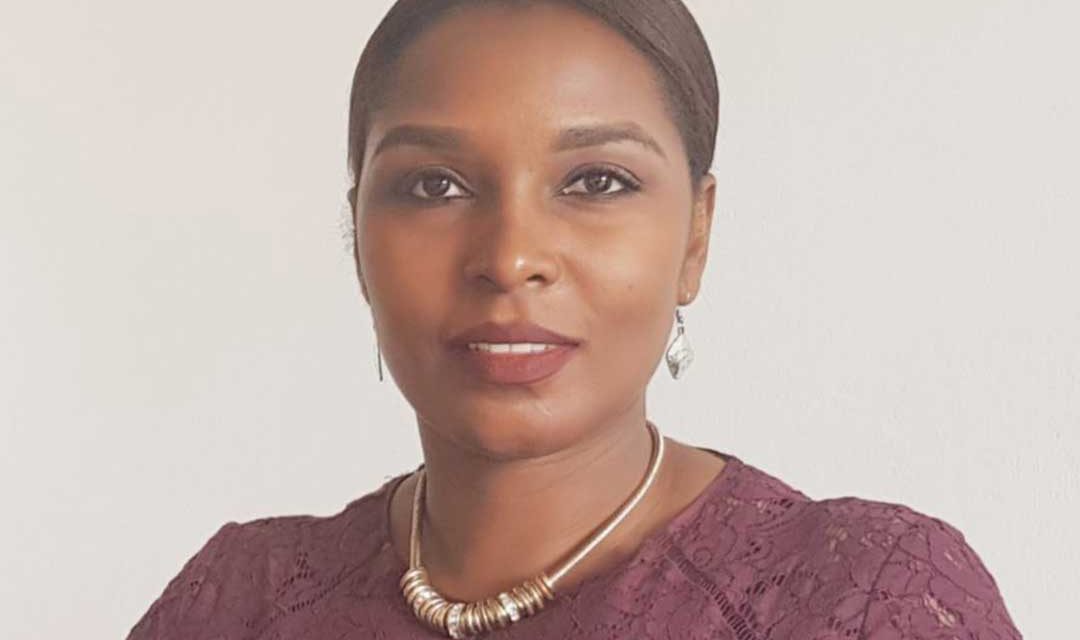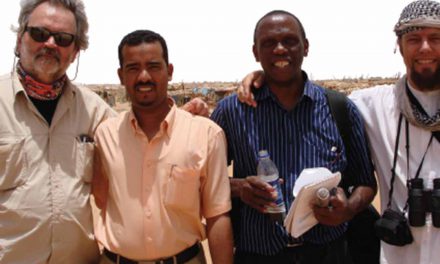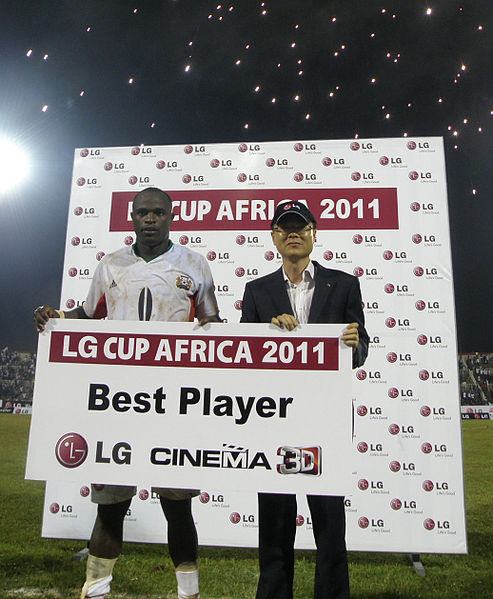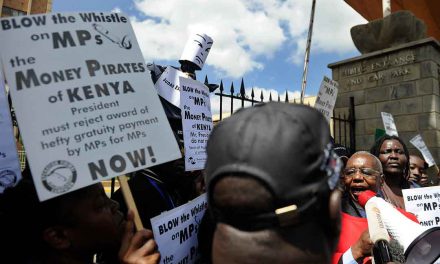Women in media: glass ceilings
Too many African women media professionals find their advancement frustrated by traditional cultural roles and gender stereotypes
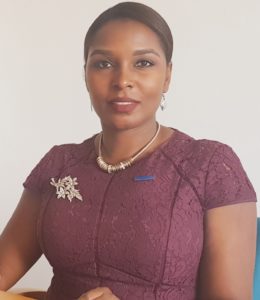
Edyth Kambalame
Photo: Josephine Chinele
Zambian journalist Ruth Kanyanga Kamwi has been in the journalism trade for 20 years and is all too familiar with the particular challenges that African women media professionals face from their own colleagues working in what is already a hostile environment. At times, she notes, women have to work twice as hard as men to be considered for top jobs. “Female journalists are made to believe that getting a job is a privilege and not their right,” she tells Africa in Fact. “[So] they resort to all sorts of things, in some cases, exchanging sex for jobs. Sometimes those already in the system are expected to ‘drink coffee’ with the boss if they want to be recommended for promotion, despite their qualifications and experience. But again, certain professionals don’t do that. They value their integrity and reward based on meritocracy.” Kamwi has strived to beat the system. “I have tried my best to stay out of trouble. Challenges have presented themselves differently at different levels…
Balancing the roles of a mother, wife and working as a journalist is not easy, more especially if I have to work weekends and knock off at odd hours.” In addition to their struggle to balance work with domestic responsibilities, something with which women the world over are all too familiar, African women in the media industry say they are also forced to contend with deeply entrenched gender stereotypes in newsrooms, which they describe as “men’s clubs”. And while the African media landscape may differ from region to region, country to country, the personal experiences of women interviewed for this article reveal that traditional cultural roles in general spill over into newsrooms and the work environment, leaving women to believe they will have little opportunity to thrive. Media Institute of Southern Africa (Misa) Malawi Chairperson Theresa Ndanga reveals that being both young and female meant it took a lot of courage for her to prove her worth when she joined the media. “It was always difficult to get stories from senior male sources simply because of my physical looks and by being female,” she recalls.
“In some instances, even when I was the editor and I went to interview someone, before the interview would start, sources would ask why my media house decided to send me and not my bosses. I would say ‘I am the boss’. I would only win their respect during the course of the interview, and most would commend me afterwards.” Ndanga says she has also experienced sexual harassment. “Sometimes male sources made sexual advances, which I found inappropriate, and [it] often ended up spoiling the work relationship as they didn’t like the fact that I never gave in to the pressure.” But Ndanga believes women are partly to blame for these attitudes because they do not project themselves as being capable leaders. When women are not promoted, she thinks, they rarely demand to know why. “Our male counterparts demand what they want and can even negotiate for the salary they want,” she says. “Women rarely do this. But I’m glad that some women, in other parts of the world, are beginning to demand similar positions of those that men occupy and similar salaries.
You may remember the BBC incident where a female employee resigned because she wasn’t getting pay equivalent to her male counterparts. I hope this attitude spreads to other parts of the world.” The International Women’s Media Foundation (IWMF)’s Global Report on the Status of Women in the News Media, published in 2010 after a two-year study, found that in sub-Saharan Africa women’s under-representation in the news media was especially pronounced in the Democratic Republic of Congo (DRC), Malawi and Zimbabwe, where women’s total representation was 15, 27 and 27% respectively. By contrast, the study found, women journalists in South Africa slightly exceeded the number of men. Women’s representation at news reporting levels was low, except for senior management, where half the number were women. Senior management included editors in chief, managing editors, and bureau chiefs.
The IWMF report noted that women were severely under-represented in Malawian media, where their absence was most noticeable at junior (14.1%) and senior professional levels (16.2%), which contain the core teams of news reporters, correspondents, producers and anchors. The chairperson of the Association of Women in Media (Awome) in Malawi, Edyth Kambalame, believes that African women in the media are not recognised for top media management positions even when they have the appropriate qualifications and experience mainly because of negative stereotypes that lead to the belief that women are incapable of leadership. “We live in a largely patriarchal society that views men as natural leaders while women have to constantly prove their worth, even when they may be equally or even more qualified than their male competitors,” she told Africa in Fact. “If you analyse the portrayal of women in our media, you will see that women are still the face of poverty. “Now, how can this poor woman be deserving of space at the decision making table?
That is why the media industry has largely relegated women to less influential positions. While some progress is being made, it is still slow and more needs to be done to ensure equal gender representation at the top.” Kambalame adds, however, “I like to think that each profession has its own challenges. But for journalism in particular, I believe it’s important that women start to be recognised and treated as being equal to their male counterparts. There is need to create opportunities and an enabling environment for women to rise and occupy positions of influence in the media.” Veteran Kenyan journalist Joyce Chimbi agrees that the underrepresentation of women in managerial positions is a reflection of the systematic gender exclusion in all aspects of our society. “Gender stereotypes have locked women out of top-level management through the perception that they are not well-equipped to lead, [while] women themselves perceive themselves as not well-equipped to lead,” Chimbi says.
“All these issues have created barriers to access opportunities to gain the job experience they need to lead.” In Kenya, research reveals that unlike elsewhere in sub-Saharan Africa, there are more women in newsrooms than men. An African women and child feature service study done by Kenyan Media and Women in Political News (2013) found that, although there are more women than men in media houses, 32% of stories on television, radio, and newspapers were reported by female journalists, as compared to 53% by male journalists. Women journalists were more dominant as news anchors (74%) than men (22%). The statistics reveal that women are often marginalised from the hard news, the news that “matters”, or relegated to soft news. They remain invisible, even though they exist in large numbers, and there is a perception that women can only thrive covering subjects such as fashion and food reviews. Defining hard news, such as politics, is the preserve of men. Chimbi agrees. “At times this is due to the nature of the job,” she says.
“Women have reproductive, productive and caregiving jobs that often get in the way. To get a good hard news story, women must be unencumbered by all these other roles and avail themselves even late at night for ‘boy club’ meetings where these stories play out. In my experience as a female journalist, I have encountered gender stereotypes; certain stories are still the preserve of men. There is implicit bias in the media whereby if you pitch a story, say on politics, the economy, terrorism, a male colleague is much more likely to be assigned the story.” She notes that society is also more welcoming to male journalists, that they are taken more seriously than women. Chimbi also points out that fewer women in top leadership means that the workplace is still not fully alive to the challenges unique to women. “For instance,” she says, “at times biological challenges can have an impact on a woman’s productivity such as a heavy period, cramps, a miscarriage, problems with a new contraceptive that a male leader might not understand.” Despite these challenges, universities and colleges continue to produce female graduate journalists.
Blantyre International University, for instance, graduates 15 female journalists a year. Lecturer Nelson Nyirenda says that workplace discrimination demotivates women and results in reduced work output. “In the workplace, men have a tendency to look down on women,” he says. “They think women cannot do anything significant, which is totally wrong.” African women in media agree their profession is still by and large a “men’s club”. But given that the public gets much of its information from the media, it’s frustrating to note that women are marginalised from decision-making about the reporting of critical issues that directly affect people’s lives – be it in areas of health and education or the economy and politics. The media have a huge influence on opinion in our society, and if they do not promote gender inclusivity the status quo will likely remain unchanged. Real changes in the roles of women in society, and the place of women and girls in our culture more generally, should start with the media.
Josephine Chinele is multi-award-winning international journalist. She has worked as a news, features and investigative journalist for newspapers, radio and television platforms in Malawi, Tanzania and South Africa. Josephine has also been awarded several prestigious journalism fellowships in the area of HIV and AIDS, health and human rights among others. She is also a biomedical HIV prevention advocate.

